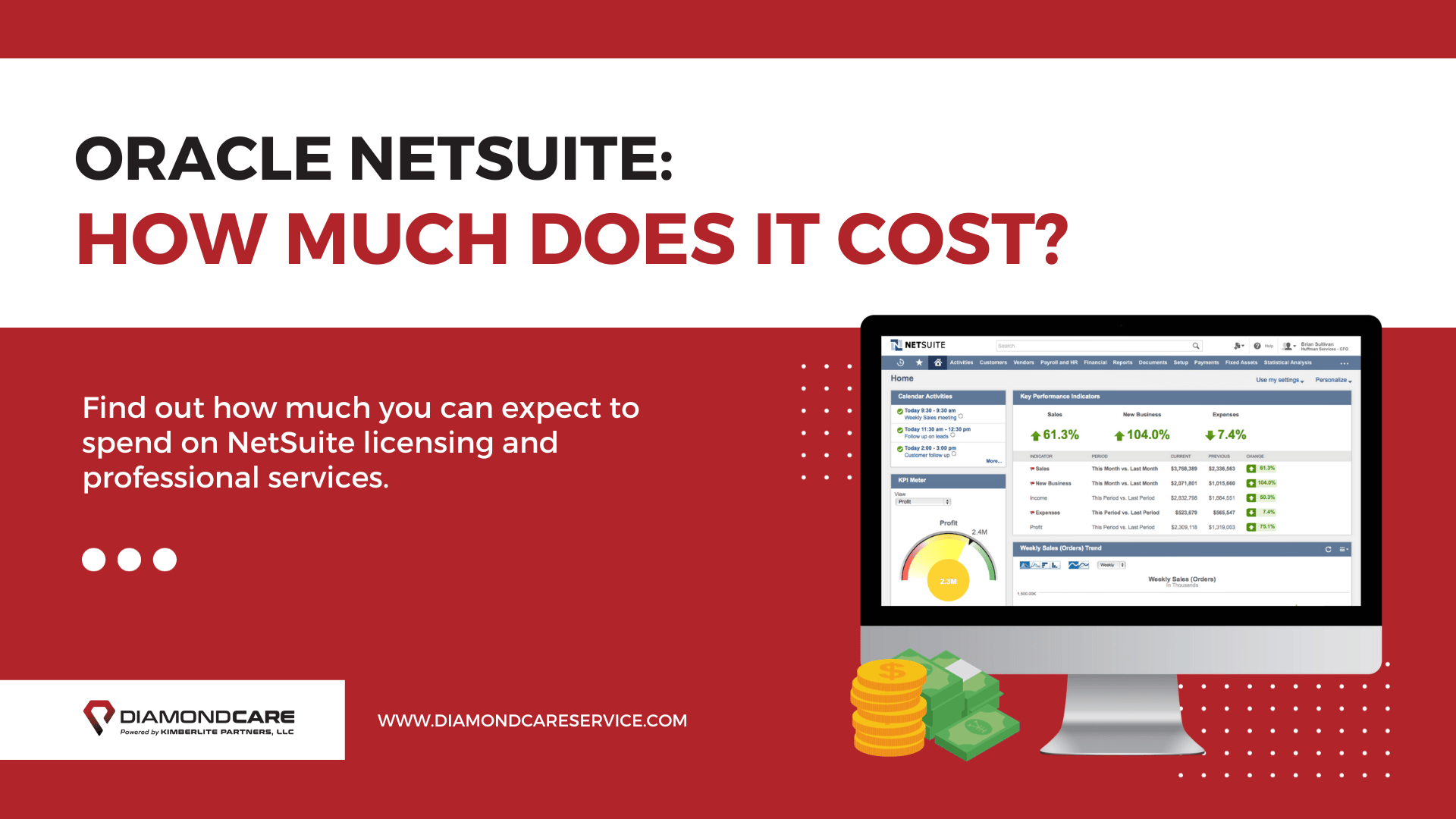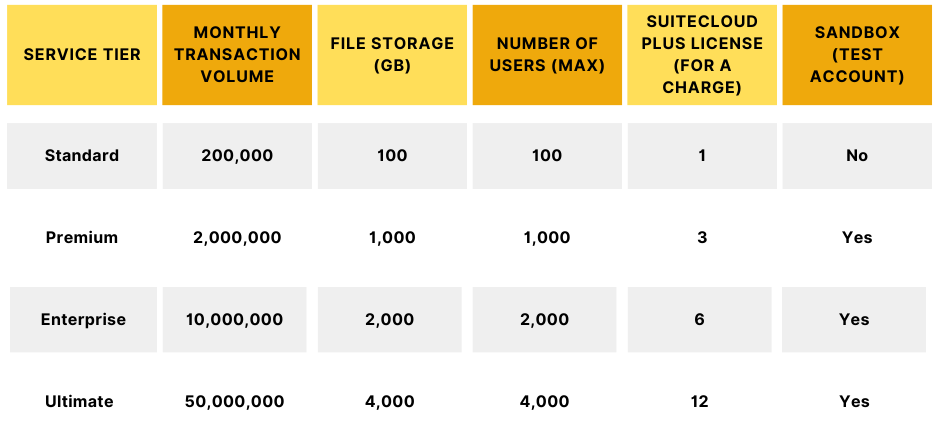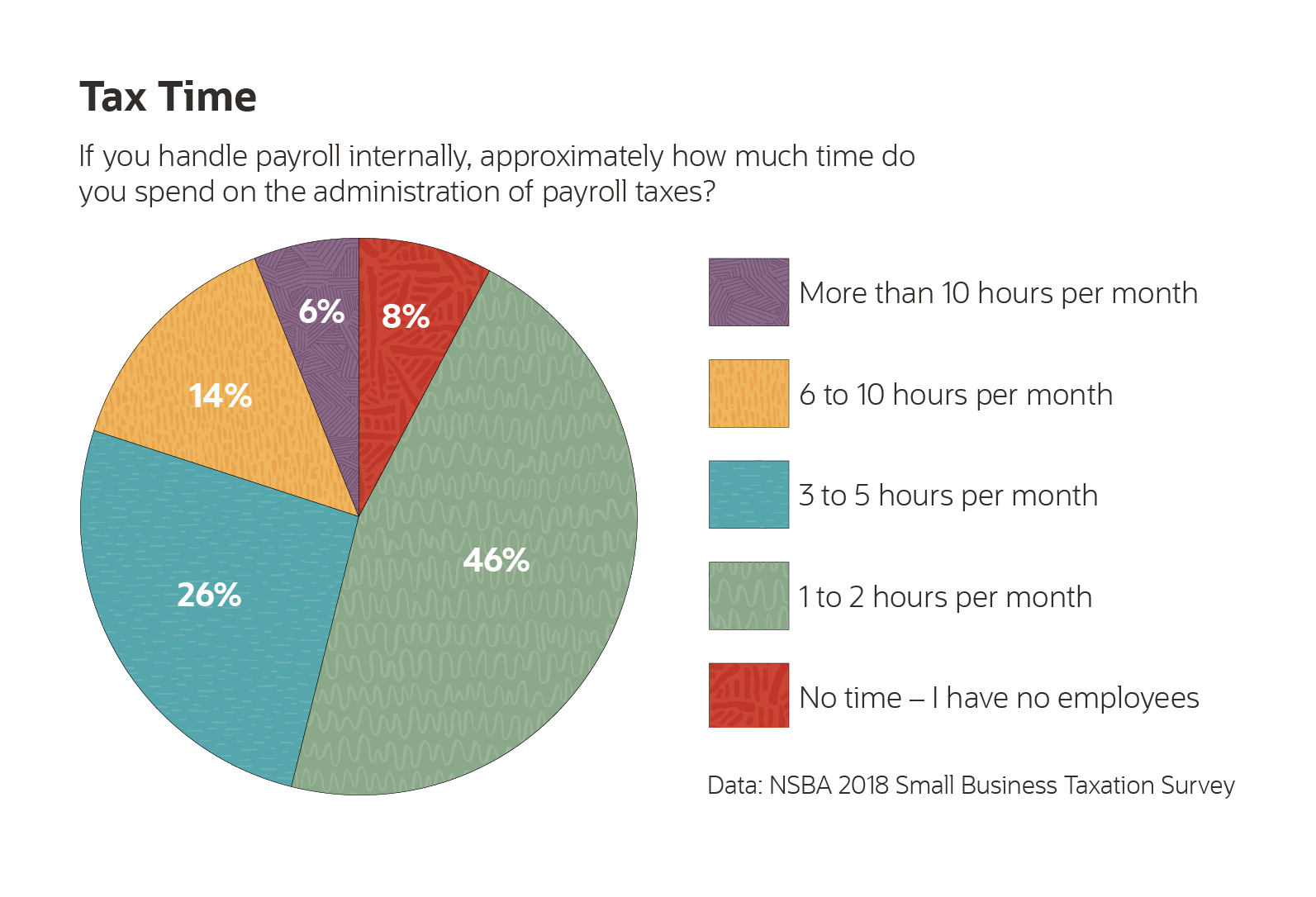NetSuite costs for a small business typically start at $1,000 per month. Prices vary based on modules and user requirements.
NetSuite is a cloud-based enterprise resource planning (ERP) software designed to help businesses manage various operations. Small businesses can benefit from its comprehensive tools, including financial management, CRM, and e-commerce. The cost of NetSuite can vary based on the specific needs and size of the business.
Subscription fees start at around $1,000 per month, but additional modules and user licenses can increase the total cost. Investing in NetSuite can streamline operations, improve efficiency, and support growth. It is essential to evaluate your business needs to determine the most cost-effective plan.
Introduction To Netsuite For Small Businesses
Netsuite is a powerful tool for small businesses. It helps manage finances, inventory, and customer relations. As an ERP (Enterprise Resource Planning) system, Netsuite integrates core business processes into one platform.
This integration simplifies operations and boosts efficiency. Small businesses can save time and reduce errors. Investing in Netsuite can lead to growth and success.
The Role Of Erp In Growth
ERP systems play a crucial role in business growth. They streamline operations and provide real-time data. Small businesses can make informed decisions quickly.
- Improved data accuracy
- Enhanced collaboration
- Better customer service
With an ERP, businesses can scale easily. They can handle increased workloads without extra staff. This efficiency leads to cost savings and higher profits.
Benefits Of Netsuite
Netsuite offers several benefits for small businesses. It provides a comprehensive suite of applications. These include financial management, CRM, and e-commerce.
| Feature | Benefit |
|---|---|
| Financial Management | Automates accounting tasks |
| CRM | Improves customer relationships |
| E-commerce | Supports online sales |
These features help small businesses operate more efficiently. They can focus on growth and customer satisfaction. Netsuite also offers scalability. It grows with your business needs.
Cost Components Of Netsuite
Netsuite is a powerful ERP solution for small businesses. Understanding its cost components is crucial. Let’s break down the main cost factors.
Subscription Fees
The subscription fees are the primary cost of Netsuite. These fees depend on the modules and user count. Small businesses typically pay between $99 to $999 per month.
- Base License Fee: This is a fixed monthly cost.
- User Licenses: Each user incurs an additional fee.
- Module Costs: Extra modules add to the overall cost.
Below is a table for a clearer view:
| Component | Cost |
|---|---|
| Base License | $99/month |
| User License | $99/user/month |
| Additional Modules | $199 – $999/month |
Customization Costs
Customization costs vary based on the complexity of your needs. Small businesses might need custom reports or tailored workflows. These customizations help in adapting Netsuite to unique business processes.
- Simple Customizations: $1,000 – $5,000
- Moderate Customizations: $5,000 – $10,000
- Complex Customizations: Over $10,000
Investing in customizations ensures that Netsuite fits your business perfectly.
Implementation Expenses
Implementation expenses cover the setup and configuration of Netsuite. These costs can be significant but are necessary for a smooth transition.
- Consultant Fees: $150 – $250 per hour
- Training Costs: $1,000 – $5,000
- Data Migration: $2,000 – $10,000
Working with experienced consultants can optimize these expenses. They ensure a seamless setup, saving time and money.
Pricing Models Explained
Understanding the cost of NetSuite for a small business can be complex. NetSuite offers multiple pricing models to fit different business needs. Knowing these models will help you make an informed decision.
License-based Pricing
License-based pricing involves a fixed fee for access to NetSuite software. This fee is typically charged annually. Small businesses can choose from different license levels based on their needs.
- Basic License: Includes core features and functionalities.
- Advanced License: Adds more advanced features and tools.
- Premium License: Provides full access to all features.
The cost varies based on the license level you choose. This model is straightforward but can be expensive for small businesses.
User-based Pricing
User-based pricing charges fees based on the number of users. Each user gets individual access to NetSuite. This model is flexible and scalable.
- Small businesses can start with a few users.
- As the business grows, more users can be added.
Pricing per user can range from $99 to $999 per month. The cost depends on the role and access level of each user. This model suits businesses with fluctuating staff numbers.
Module-based Pricing
Module-based pricing allows businesses to pay for specific modules they need. NetSuite offers various modules like CRM, ERP, and eCommerce.
| Module | Monthly Cost |
|---|---|
| CRM | $129 |
| ERP | $399 |
| eCommerce | $199 |
This model is cost-effective for businesses needing specific features. Small businesses can add or remove modules as needed. This flexibility allows for better budget management.

Credit: diamondcareservice.com
Understanding The Total Cost Of Ownership
Understanding the Total Cost of Ownership (TCO) is crucial for small businesses. This helps in budgeting and planning for NetSuite. The TCO includes all the expenses you will incur from the initial purchase to ongoing costs.
Initial Investment
The initial investment for NetSuite can vary. It includes the license fee and implementation costs. The license fee is a one-time payment. It depends on the number of users and modules you need. The more users and modules, the higher the cost.
| Expense | Estimated Cost |
|---|---|
| License Fee | $999 – $2,999 |
| Implementation | $10,000 – $50,000 |
Implementation costs cover setup, data migration, and training. These are essential for a smooth start.
Ongoing Operational Costs
After the initial investment, consider ongoing operational costs. These include subscription fees, support, and maintenance.
- Subscription Fees: Monthly or annual payments based on your plan.
- Support: Costs for technical support and customer service.
- Maintenance: Regular updates and system upkeep.
Subscription fees can range from $99 to $999 per month. Support and maintenance costs vary based on your needs.
Understanding these costs helps you plan your budget effectively. It ensures your business can sustain NetSuite over time.
Comparing Netsuite To Alternative Solutions
Choosing the right ERP for your small business is crucial. Netsuite is a popular choice, but there are other options. In this section, we compare Netsuite to alternative solutions.
Open-source Erps
Open-source ERPs are a great alternative to Netsuite. They are free to use and offer flexibility. Here are some popular open-source ERPs:
- Odoo: Offers a suite of business apps. It’s modular and customizable.
- ERPNext: Simple to use and fully open-source. Suitable for small to medium businesses.
- Dolibarr: Easy to install and use. Good for small businesses and freelancers.
Open-source ERPs can save costs but may need technical expertise. They are ideal for businesses with tight budgets. You can customize them to fit your unique needs.
Cloud Vs On-premise Solutions
Choosing between cloud and on-premise solutions is important. Each has its own benefits and drawbacks. Let’s look at a comparison:
| Feature | Cloud Solutions | On-Premise Solutions |
|---|---|---|
| Cost | Subscription-based, predictable costs | Upfront costs, variable maintenance |
| Scalability | Easily scalable | Limited by hardware |
| Maintenance | Managed by provider | Managed by in-house team |
| Accessibility | Access from anywhere | Access limited to physical location |
Cloud solutions offer flexibility and lower initial costs. They are managed by the provider, reducing the need for in-house IT staff. On-premise solutions require a larger initial investment. They offer more control and may be better for businesses with specific security needs.

Credit: threadgoldconsulting.com
Case Studies: Small Business Investment In Netsuite
Small businesses often face budget constraints. Investing in ERP solutions like Netsuite can be challenging. Yet, many small businesses have found success. This section explores real case studies. See how small businesses have invested in Netsuite.
Success Stories
Many small businesses have thrived using Netsuite. Below are a few success stories.
| Company | Industry | Results |
|---|---|---|
| ABC Tech | IT Services | Reduced operational costs by 20% |
| XYZ Retail | Retail | Increased sales by 15% |
| 123 Manufacturing | Manufacturing | Improved inventory management |
Challenges And Solutions
Many small businesses face challenges with Netsuite. Here are common issues and their solutions.
- High Initial Cost: Many find the initial cost high. Solution: Opt for phased implementation.
- Complexity: Some users find Netsuite complex. Solution: Invest in training sessions.
- Customization Needs: Businesses need specific features. Solution: Use third-party integrations.
Small businesses can thrive with Netsuite. By addressing challenges, they can see real benefits.
Maximizing Roi With Netsuite
Maximizing ROI with NetSuite is crucial for small businesses. NetSuite offers many features that can boost efficiency and profitability. Implementing it correctly ensures you get the best return on your investment.
Best Practices For Implementation
Successful implementation starts with a clear plan. Map out your business needs and goals. Ensure everyone on your team understands the plan.
- Set Clear Objectives: Define what you want to achieve with NetSuite.
- Assign a Project Manager: Have someone oversee the implementation process.
- Data Migration: Ensure your data is clean and well-organized before migration.
Use a phased approach. Start with core functionalities and expand gradually. Regularly review your progress and adjust as needed.
Training And Support
Training is vital for maximizing NetSuite’s benefits. Ensure your team knows how to use the system effectively.
- Initial Training: Provide comprehensive training sessions for all users.
- Ongoing Support: Offer continuous support through documentation and helpdesks.
- Advanced Training: Arrange advanced sessions for specialized functions.
Leverage NetSuite’s support resources. Utilize online forums, tutorials, and customer service.
Navigating The Purchase Process
Understanding the cost of NetSuite for a small business is crucial. The purchase process can be overwhelming. Here’s how to navigate it efficiently.
Selecting The Right Package
Small businesses need the right NetSuite package. This ensures they get value for their money. NetSuite offers various packages. Each one caters to different business needs.
- NetSuite Starter Package – Ideal for small businesses just starting out.
- NetSuite Standard Package – Suited for growing businesses with more complex needs.
- NetSuite Advanced Package – Best for businesses requiring advanced features and scalability.
Each package comes with different features and pricing. Assess your business needs carefully. Choose a package that aligns with your goals.
Negotiating With Vendors
Negotiating with NetSuite vendors can save you money. It’s a critical step in the purchase process. Follow these tips to get the best deal:
- Do your research – Understand the market rates and offerings.
- Ask for discounts – Vendors often offer discounts for small businesses.
- Request a demo – Ensure the package meets your needs before buying.
- Check for hidden costs – Be aware of any additional fees or charges.
- Negotiate terms – Discuss payment terms and contract length for flexibility.
Effective negotiation can lead to significant savings. It also ensures you get the best value for your investment.
Future-proofing Your Business With Netsuite
Investing in Netsuite helps ensure your business stays competitive. It offers tools to scale, adapt, and grow. As your business evolves, Netsuite supports your changing needs.
Scalability Considerations
Netsuite is designed to grow with your business. Whether you have 10 or 100 employees, it scales efficiently. Here are some key features:
- Customizable modules to fit business needs
- Supports multi-location operations
- Handles increasing transaction volumes
These features make it easy to manage expansion. You won’t need a new system as your business grows. Netsuite adapts, saving you time and money.
Staying Current With Updates
Netsuite ensures you always have the latest features. Regular updates keep your system current. This includes security patches and new functionalities.
| Update Type | Frequency |
|---|---|
| Security Patches | Monthly |
| New Features | Quarterly |
Regular updates mean you benefit from the latest technology. This keeps your business efficient and secure.
Netsuite also offers customer support for any issues. This ensures you can resolve problems quickly. With support and updates, your business stays ahead.

Credit: www.netsuite.com
Frequently Asked Questions
How Much Does Netsuite Actually Cost?
NetSuite costs vary based on modules and users. Prices start around $999 per month plus $99 per user. Pricing can increase with additional features.
Is Netsuite Worth It For A Small Business?
Yes, NetSuite can be worth it for small businesses. It offers comprehensive features, scalability, and integration capabilities, enhancing efficiency.
How Much Does It Cost To Set Up A Netsuite?
Setting up NetSuite typically costs between $25,000 and $100,000, depending on business size and specific requirements. Pricing includes licensing, implementation, and support.
Can I Use Netsuite For Free?
NetSuite offers a free trial, but it is not free to use long-term. Subscription plans are available.
Conclusion
Understanding the cost of NetSuite for a small business can streamline your budgeting process. Consider your specific needs and compare pricing plans. Investing in the right NetSuite package can enhance your business operations. Ensure to evaluate all features and benefits before making a decision.
This will help you get the best value.